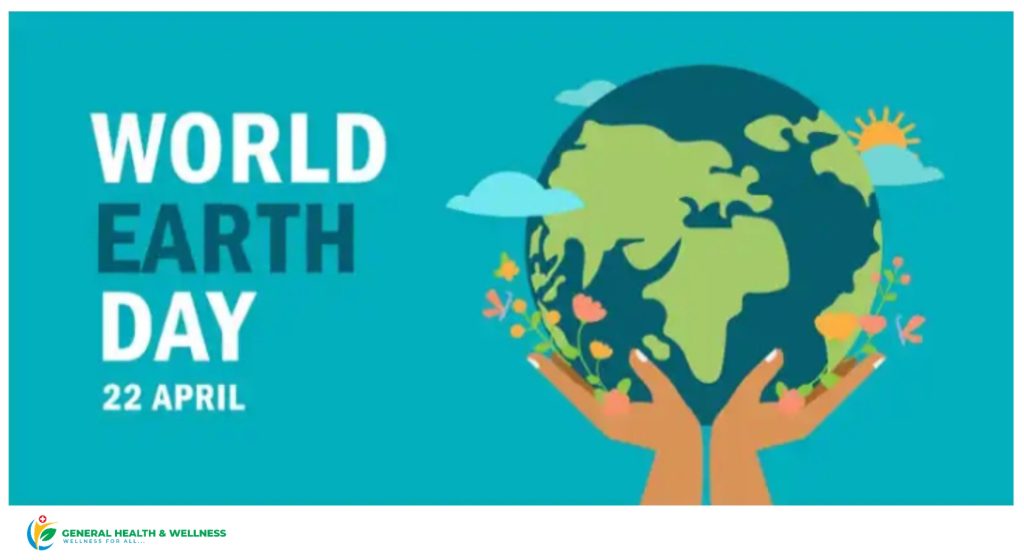What is Earth Day?
Earth Day, observed annually on April 22, is a global event dedicated to environmental protection. It began in 1970 in the United States and has since grown into a worldwide movement involving over 190 countries.
The goal is to raise awareness about environmental issues and encourage sustainable practices to protect the planet.
The Health-Environment Connection
The health of our planet directly impacts human health. Clean air, safe water, nutritious food, and a stable climate are essential for well-being. When ecosystems are degraded, public health risks increase.
1. Air Quality
- Pollution from vehicles, factories, and wildfires releases harmful particles into the air.
- Poor air quality is linked to asthma, lung cancer, heart disease, and stroke.
- Children, the elderly, and people with preexisting conditions are most vulnerable.
2. Water Safety
- Contaminated water sources can cause diseases like cholera, dysentery, and lead poisoning.
- Waterborne illnesses are common in areas with poor sanitation and industrial pollution.
3. Climate Change
- Rising temperatures contribute to heat-related illnesses, vector-borne diseases (e.g., malaria, dengue), and mental health stress.
- Climate change also exacerbates natural disasters like hurricanes and floods, increasing injuries and displacement.
4. Food and Agriculture
- Soil degradation, pesticides, and climate stress affect food quality and supply.
- Nutrient loss in crops and reduced biodiversity threaten food security and nutrition.
Cultivating a Culture of Safety: Awareness and Training in Health and Safety
Environmental Health Hazards
These are risks from physical, chemical, and biological agents in the environment:
| Hazard | Impact on Health |
|---|---|
| Lead and heavy metals | Neurological issues, developmental delays |
| Plastics and microplastics | Endocrine disruption, reproductive problems |
| Pesticides and herbicides | Cancer, hormonal imbalance |
| Noise pollution | Stress, hearing loss, cardiovascular issues |
Mental Health and Nature
Spending time in nature improves mental health by:
- Reducing stress and anxiety
- Boosting mood and concentration
- Lowering the risk of depression Green spaces in urban areas are linked to better overall health outcomes.
Sustainable Actions for a Healthier Earth and You
Small individual efforts can improve both the environment and personal health:
At Home:
- Use eco-friendly cleaning products
- Reduce energy consumption
- Eat more plant-based foods
In the Community:
- Support local farmers and green businesses
- Advocate for green spaces and clean air policies
- Participate in clean-up drives and tree-planting
Lifestyle Choices:
- Walk or bike instead of driving
- Reduce single-use plastics
- Recycle and compost waste
Earth Day 2025 Theme
Each year, Earth Day has a unique theme. This year’s theme and activities, “Our Power, Our Planet” The theme typically focuses on urgent environmental challenges such as plastic pollution, climate change, or biodiversity loss.
In conclusion, Earth Day reminds us that a healthy planet means healthy people. Environmental stewardship is not just an ecological responsibility it’s a public health imperative.
By protecting nature, we’re also protecting ourselves and future generations.





